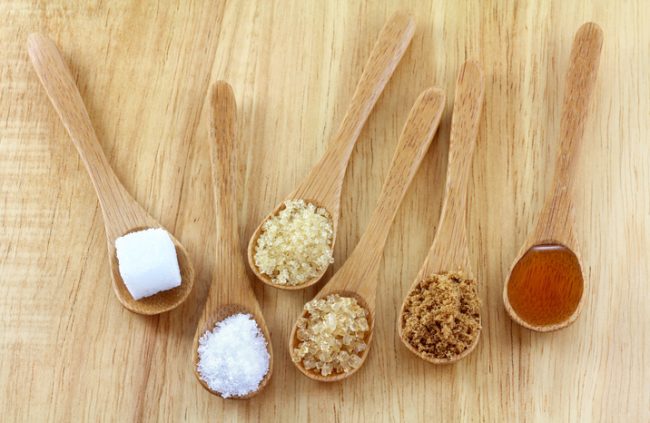The holiday goodies are gone, cookies consumed, treats a distant memory—so why is it so hard to so hard to stop thinking about your next sugary bite and what can you do about it?
According to Dr. Mark Hyman, founder and medical director of the UltraWellness Center and New York Times bestselling author, “We are all programmed to like sugar.” “The average American consumes about 152 pounds of sugar a year. That’s roughly 22 teaspoons every day for every person in America.”
Sugar itself isn’t inherently bad but when poor-quality refined sugar is consumed as a regular part of the diet that is when problems begin.
“Sugar, in moderate amounts, is essential to our body. As a carbohydrate, it helps supply you with the energy you need for your daily activities. All of your cells use it. But at the same time, sugar is also a calorie, and once it is in consumed in excess, negative effects to your health will follow,” explains Dr. Joseph Mercola, alternative health care practitioner and osteopathic physician on his website.
Besides unwanted weight gain, excess sugar consumption has been linked to an ever growing list of health concerns including chronic inflammation, low energy, weakened immune system health, Candida, gastrointestinal issues and more.
If you are ready to break your sugar addiction and start feeling better and more energized, it’s time for a quick pantry upgrade.
When is the last time you really cleared out your food storage cabinets? Do it now and get rid of the highly processed, sugar=filled and artificially sweetened foods to make room for some new and supportive choices.
1. Swap out sweeteners
If going cold turkey isn't for you, try reducing the amount of added sweeteners you are using.
Switch things up by using a gentler sweetener such as Lakanato Monkfruit Sweetener, stevia or xylitol.
Lakanato is a recommended choice of Donna Gates, author of The Body Ecology Diet. “When searching the world over for a natural sweetener that met all of the Body Ecology health criteria…it does not feed Candida, does not cause tooth decay, does not raise blood sugar, tastes great…we found LAKANTO.”
2. Take a tea break
Do you struggle with sugar cravings especially at night? According to registered dietitian Joy Bauer on the Today Health website; “Cravings can be so tempting at night because it’s often the first time you get to relax after a long day, and feelings of tiredness or emotion make it harder to say no to temptation.”
Stock your pantry with some non-caffeinated, herbal tea blends with naturally sweet and soothing flavors. Look for those that have flavors that you enjoy; vanilla, carob, soothing chamomile, lavender, fennel or sweet spices, including cinnamon, cardamom or nutmeg . If you’re craving a fruity flavor try pomegranate, lemon grass, orange, peach, mango or lemon/ginger to soothe your digestion. Many of the relaxing, bedtime teas combine traditional herbs that help the body to relax, which can result in more restful sleep.
3. Spice things up
If you can’t remember how long it’s been since you’ve replaced the spices and herbs in your cabinet, it’s probably been too long.
Spices in general have a longer shelf life than herbs. Whole spices will keep for many years, while ground spices should be used within 2-3 years. Herbs have a shorter shelf life, losing their potency and flavor after a year or so. If you are not sure, taste and smell them.
Start adding in more sweet and warming spices to the dishes you prepare. Coriander, cinnamon, nutmeg, cloves and pumpkin pie spice blend will all add a level of sweetness without the damaging effects of added sugar. If your spice cabinet is lacking, try adding in something new: star anise, fennel or cardamom.
Add a pinch of ground cinnamon to sliced pears, stew up some naturally sweet winter squash and add in a pinch of nutmeg and cardamom. Use a blend of sweet and spicy herbs to your next pot of chili. Have fun and experiment creating tastes that appeal to your palate.
Organizing and stocking your pantry with go-to ingredients makes leaving sugar behind a whole lot easier.




